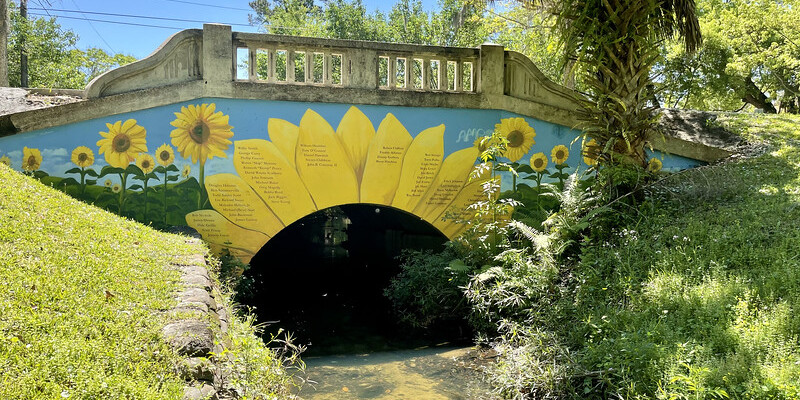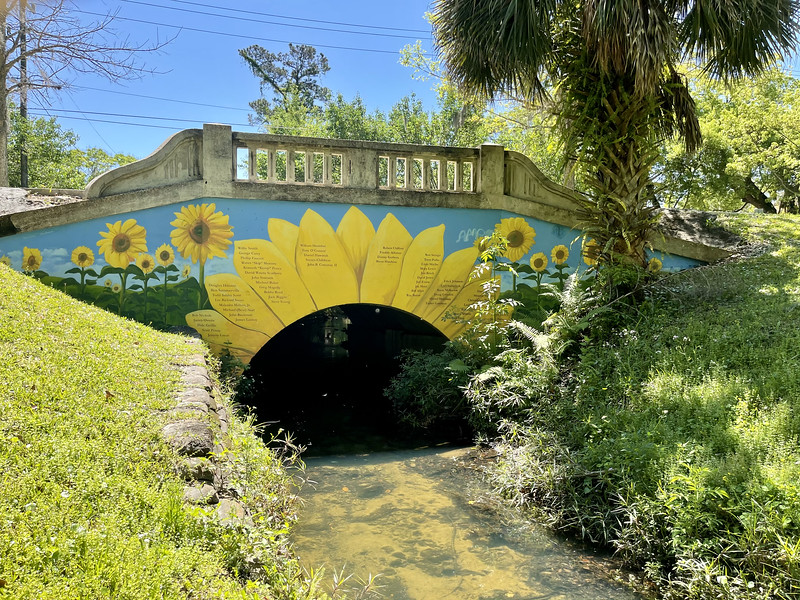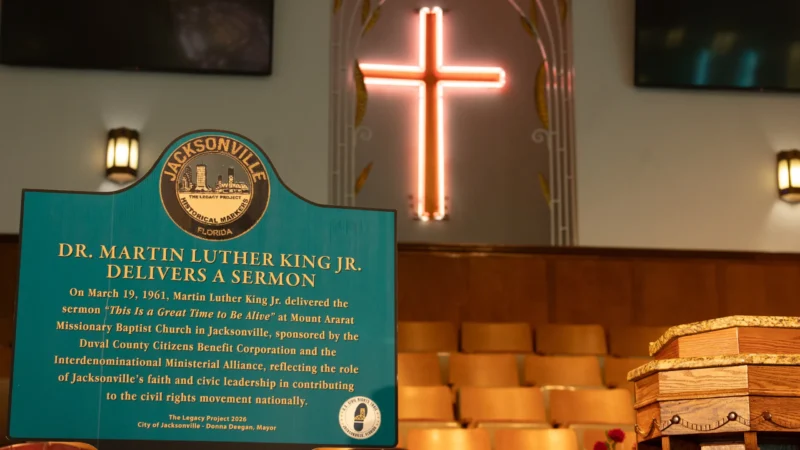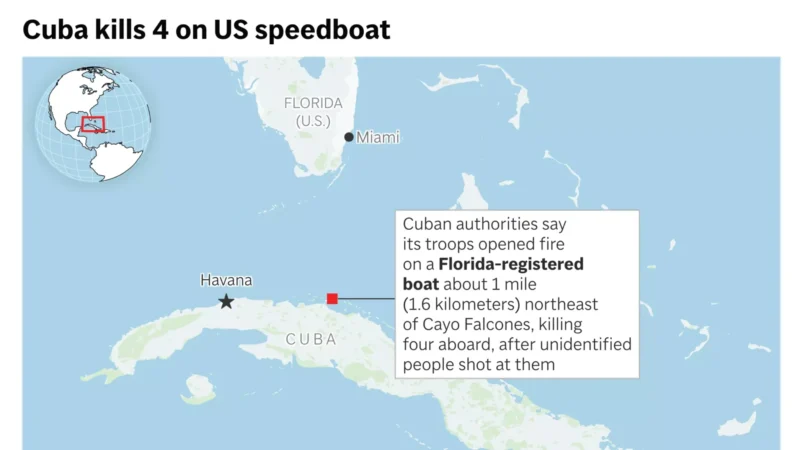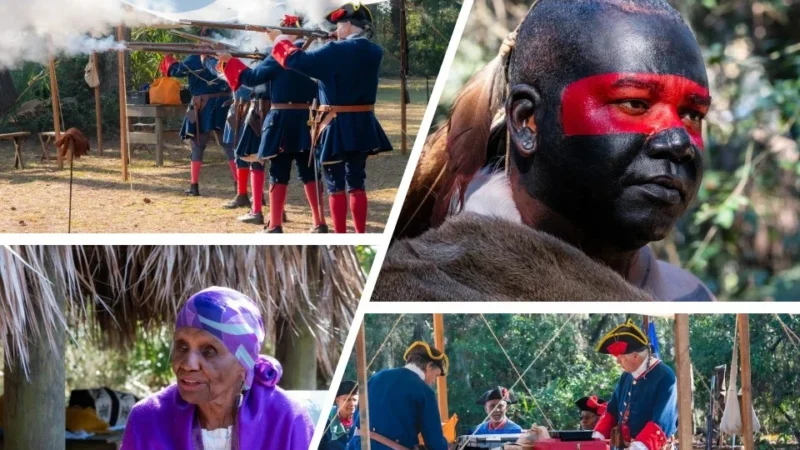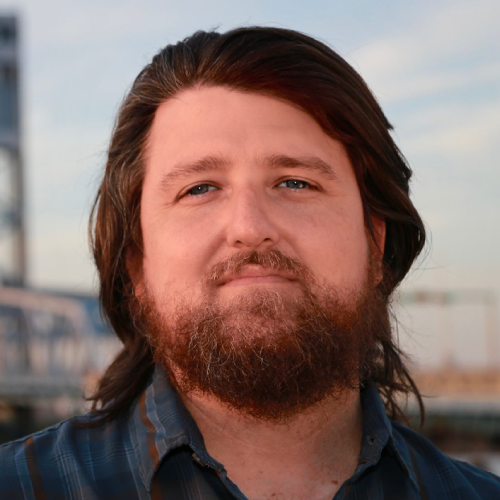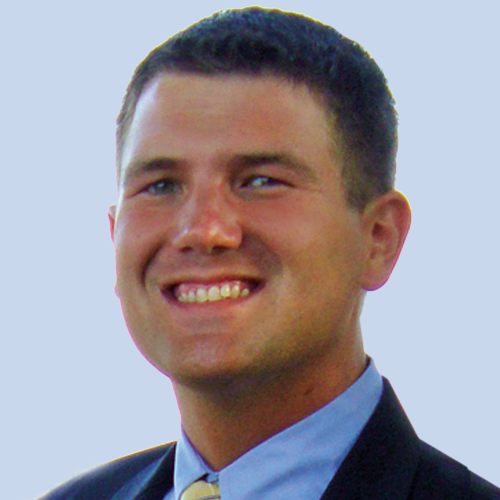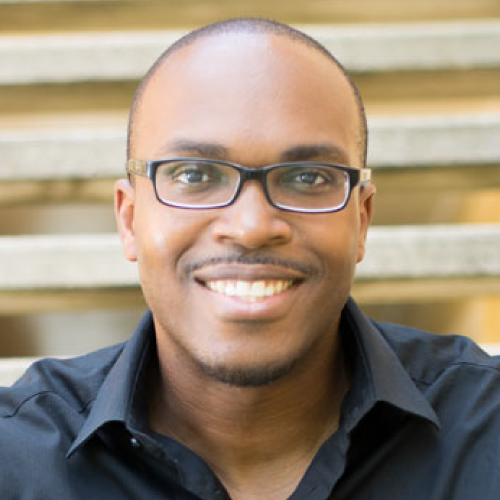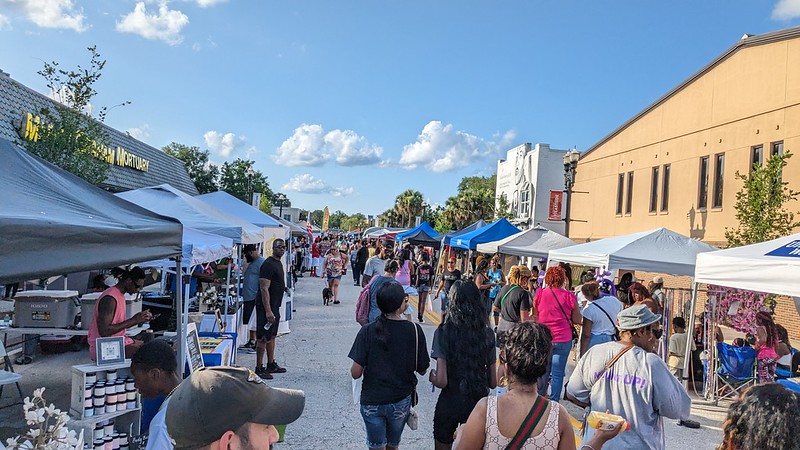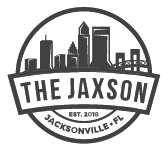
Jacksonville’s LGBTQ history has always been rich and colorful, if often overlooked. Here’s a tour of five sites across the Urban Core with ties to the city’s LGBTQ story.
Clara White Mission: LaVilla

In the first decades of the 20th century, Jacksonville was an epicenter of blues, jazz, and ragtime music. The neighborhood of LaVilla, in particular, was later dubbed the Harlem of the South for its vibrant Black musical and performance culture. LGBTQ performers played crucial roles in cultivating Black music and bringing it to mass audiences.
The first known instance of the blues sung on stage anywhere in the world has an LGBTQ connection. It came in a 1910 performance by Professor Johnnie Woods at the Colored Airdome on Ashley Street, located on the current property of the Clara White Mission. A ventriloquist, Woods had his dummy “Little Henry” get drunk and sing the blues in a performance, as noted by the Indianapolis Freeman on April 16 of that year. In addition to his ventriloquist act, Woods was also a tap dancer and “female impersonator,” or drag performer. There’s no evidence Woods himself was queer, but his gender-bending act certainly pushed the envelope.
In 1906, legendary blues singer Gertrude “Ma” Rainey moved to Jacksonville to join Pat Chappelle’s LaVilla-based Rabbit’s Foot Company along with her husband William. As part of one of the largest Black vaudeville troupes, the Raineys traveled extensively throughout the South and beyond, spreading the popularity of the blues as a musical style. Ma Rainey, known as the Mother of the Blues, was bisexual and invoked same-sex romance and cross dressing in several of her songs. Reportedly, Rainey was arrested in 1925 after police raided a raucous party and found her and her chorus girls in a state of drunken undress.

Researchers suggest the incident inspired Rainey’s 1928 song “Prove It On Me Blues,” in which she sang:
They say I do it, ain’t nobody caught me
Sure got to prove it on me;
Went out last night with a crowd of my friends,
They must’ve been women, ‘cause I don’t like no men.
–Ma Rainey, “Prove It On Me Blues,” 1928
One of Rainey’s reported lovers was Bessie Smith, who Rainey brought into the Rabbit’s Foot Company in LaVilla in the 1910s. Smith, later known as the “Empress of the Blues,” was more or less openly bisexual and had relationships with several women, including a tumultuous affair with chorine Lillian Simpson. Smith is said to have been the one who bailed Rainey out of jail following her 1925 arrest.
Willowbranch Park and Library: Riverside

Willowbranch Park and the adjacent Willowbranch Library have had a place in Jacksonville’s LGBTQ history for six decades. The site of thousands of hushed meetings and boisterous celebrations over the years, one local pastor describes it as “holy ground.” The park dates to 1916, when it became a new public space in an expanding part of Riverside. The Mediterranean Revival-style library opened in 1930 as the city’s third branch library, after the main Downtown library and Wilder Park Library in Sugar Hill, which served African Americans during the period of segregation.
A comparatively well-to-do neighborhood in the early 20th century, Riverside saw its housing values drop in the 1960s as white flight and suburbanization led tens of thousands of Urban Core residents to move to newer, more remote developments. However, Riverside’s cheaper rents drew in a more bohemian element, and soon the neighborhood was full of musicians, artists, hippies and LGBTQ folks from far and wide.

Riverside became Jacksonville’s first substantial “gayborhood,” and residents hosted the city’s first Gay Pride Festival at Willowbranch Park in 1978, nine years after the Stonewall Riots in New York galvanized the gay rights movement. The original event was a picnic at the park, and it was such a success that the event continued. While Jacksonville’s early Pride celebrations received pushback from community reactionaries, they succeeded in the goal of increasing the visibility of LGBTQ people in the city. River City Pride has evolved into a massive celebration each October (to beat the June heat of Pride Month) featuring a parade through Riverside and several nights of revelry in Five Points.
Willowbranch Library has its own LGBTQ history. At a time of severe oppression, the library became a popular spot for LGBTQ Jaxsons to meet and organize in relative safety. Among those who met here were the founders of LGBTQ youth organization JASMYN, one of Jacksonville’s most prominent LGBTQ nonprofits (more on that in a minute).
In the 2010s, organizers and the city launched a renovation of Willowbranch Park dedicated to its long LGBTQ history and to victims of the AIDS epidemic that devastated the gay community in the 1980s and 90s. Volunteers began reforesting the park along Willowbranch Creek to create Love Grove in honor of Riversiders lost to AIDS and sponsored a sunflower mural painted on the culvert where the creek flows under Park Street. Advocates hope to add a public artwork that would be Florida’s second AIDS memorial.
College Station: Murray Hill

Like nearby Riverside, Murray Hill has a long LGBTQ history. Since at least the 1950s, the city has been home to gay bars and venues that provided a space for patrons to be themselves safely. In the 1980s, it was the site of one of the largest and most innovative gay clubs the city had ever seen: College Station. College Station was founded by Monroe Midyette, a club operator and promoter who owned several venues over the years. The club moved locations a few times, but its best known spot was in the former Edgewood Theater complex centered on the northwest corner of Edgewood Avenue and Plymouth Street on the prominent first block of Murray Hill’s business district.
College Station was the most popular gay dance club of its time, and almost certainly the first LGBTQ megaclub to open in Jacksonville. It was especially popular with artists and scenesters; among those who frequented it were artist John Reich, who was especially known for his nude illustrations. It was also a favorite spot of Robert Riggs, better known as Freeze, a major figure in New York’s Club Kids scene in the 1990s who, along with Michael Alig, was later convicted of the 1996 murder of Angel Melendez. After Midyette closed College Station, the bar was reopened by Ken Kitsch as Edge 17. Parts of the strip have continued to be used for bars and clubs, while the old Edgewood Theater building was later occupied by Jones College before ultimately being razed as part a self-storage facility.
Park Place Lounge: Riverside

Since the closing of the Metro nightclub complex in 2021 after a 28-year run, Park Place Lounge at 931 King St. has the distinction of being Jacksonville’s oldest LGBTQ bar that’s still in business. Back when this section of Riverside was seen as rough, the building originated as a Westside package store; its drive-through window testifies to its history. Park Place took on its current identity as a gay bar in the 1990s.
Since then, Park Place has witnessed King Street’s transformation into a popular bar and restaurant corridor. It’s an example of LGBTQ businesses that serve as pioneers in distressed neighborhoods. The King Street strip originated in the 1920s with the creation of Whiteway Corner at King and Park streets. Like the rest of Riverside, the area around it faced declining population and white flight in the mid-20th century. When Park Place Lounge came into the fore in the 1990s, it was one of the very few bars in the area. After a successful streetscaping project and the opening of Kickbacks Gastropub in 2005, King Street has seen the development of a variety of other bars and venues. Park Place has consistently evolved with its neighborhood. Today, it’s the only total video music bar in North Florida, featuring one of the largest outdoor patios in Historic Riverside with three supersized TVs synced to music videos, while inside you can watch on 13 different screens.
JASMYN: Brooklyn

JASMYN, one of Jacksonville’s most prominent LGBTQ nonprofits, is another Jacksonville institution that emerged from the Riverside gayborhood, and specifically Willowbranch Library. The organization providing assistance to LGBTQ young people traces its roots to 1992, when teenager Ernie Selorio left a note seeking solidarity on the library’s bulletin board. Selorio had been outed when his mother found his journal, and feeling isolated and alone, he asked others to meet him to form an LGBTQ youth support group. About 10 people turned out for the first meeting, and JASMYN was born.
JASMYN acquired this first building, originally built in 1912, to serve as a clinic, counseling center and offices. At this time, Brooklyn was seeing decline, and the large houses toward the river were largely abandoned; as such JASMYN became another example of an LGBTQ organization that was a pioneer in a struggling neighborhood and found new use for a historic building.
The organization grew dramatically and used donations and grant funding to help hundreds of LGBTQ youth a year. In 2012, JASMYN decided to be more visible in the community and continued to expand. In 2015 it acquired the adjacent house, built in 1914, formerly the headquarters of the Jacksonville Women’s Center. In 2018, JASMYN and two other local nonprofits bought the third building on the block to serve as housing for homeless and housing-insecure youths. Three decades into its mission of service, JASMYN continues to provide support to LGBTQ teens and young adults across the city.

